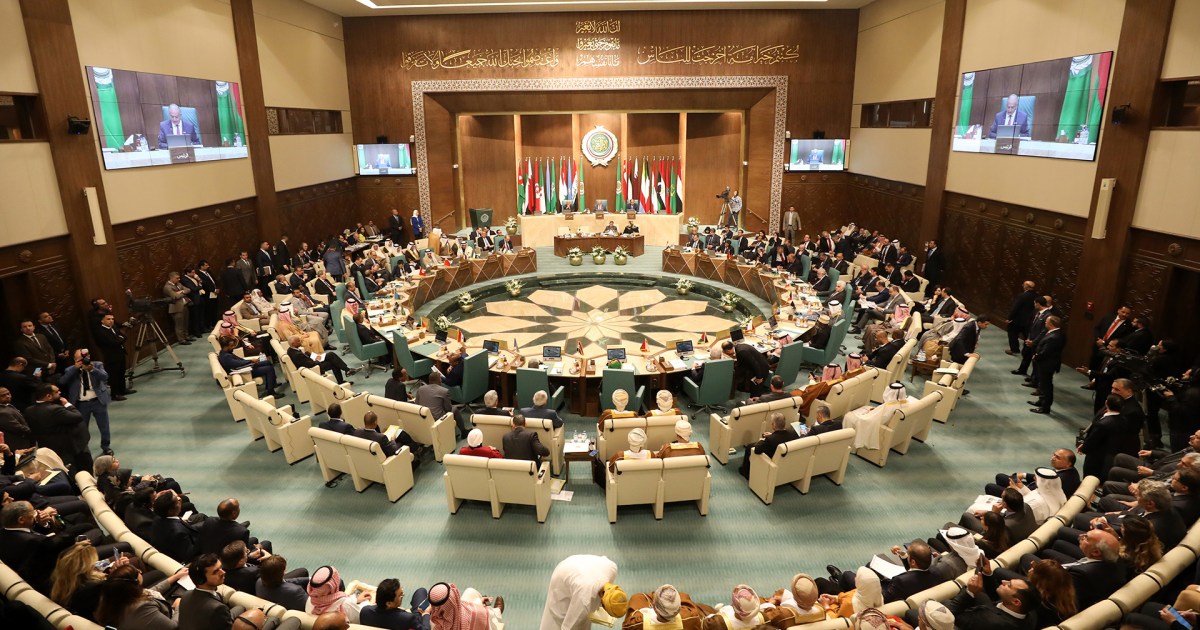Al-Jarbawi considered - in an interview with the episode (3/9/2020) of the "Scenarios" program - that the Arab League, since its inception, is not qualified to achieve Arab unity.
Crises, conflicts and wars have struck - and still are - in many Arab countries. The Arab League did not have an effective and influential presence in it, and its interaction with these crises did not go beyond the limits of monitoring and follow-up or issuing statements of denunciation or condemnation.
Even this condemnation is no longer possible now, as the university has become bogged down and has been unable to deal with the new changes in our region, especially with regard to the recent dangerous developments in the Palestinian issue.
For his part, Abdel-Latif Obeid, former assistant secretary-general of the League of Arab States and former head of the League Center in Tunis, differentiated between the General Secretariat of the Arab League, as an executive body with limited powers, and the League Council, which is represented by heads, kings and princes of states, and therefore it is the one who has real power.
Obaid expressed regret that the upcoming meeting of Arab foreign ministers would not give the issue of normalization its right to debate or reject the Emirati move.
At the request of Bahrain and the support of the UAE, the Arab League ignored a request made by the Palestinian Authority to hold an emergency meeting regarding the Emirati agreement with Israel, according to official correspondence from diplomatic sources.
The Secretary-General of the League, Ahmed Aboul Gheit - who had previously said a year ago that everything that the Palestinian or Arab side rejects is something rejected by the Arab League - did not see in this agreement what calls for an urgent meeting of the League’s Council, and preferred to wait for the periodic ministerial meeting next week. He did not see any necessity for a statement - at least - about this agreement.
For his part, former Iraqi minister and MP Wael Abdel-Latif divided the Arab dealings with the Palestinian issue into 3 stages: the first with the Nakba in 1948, where the vanguards of the Arab forces rose to support Palestine, and the second until 1973, when most Arab countries could be described as "combatants" that simply refuse The word Israel, but called it the Zionist entity.
Abdel-Latif added that the third stage after 1973 included 3 levels: Camp David, then the armistice, and finally the current stage of normalization.
Abdul Latif denounced the absence of the Arab League from what is happening in Libya, Yemen, Syria, Iraq, Egypt and other Arab countries.
Popular County
On the boycott of the Israeli occupation, Ebeid said that many Arab countries will continue the boycott because the League’s charter includes a clause indicating that Israel is a usurper state, and another article that an Arab state may not pursue a policy that harms another Arab state, which applies to the normalization step that harms Palestine.
He stressed that the Arab peoples and the Arab nation will continue to boycott Israel as an occupying country that has usurped Palestine, stressing that Israel knows this and therefore seeks to penetrate the nation culturally, media and diplomatically.
Ebeid called for an Arab awakening at the level of intellectuals to study the main Arab issues, foremost of which is the Palestinian issue and how to deal with them.
But a professor of political science at Birzeit University, Ali Jarbawi, described the Arab nation as a fragmented region, where each state seeks only its own interests, considering that some countries seek normalization in order to satisfy the American administration.
He expected that the next meeting of Arab ministers will not produce anything towards the issue of normalization with Israel, stressing that the current normalization is not matched by any interest in the Palestinian cause.

